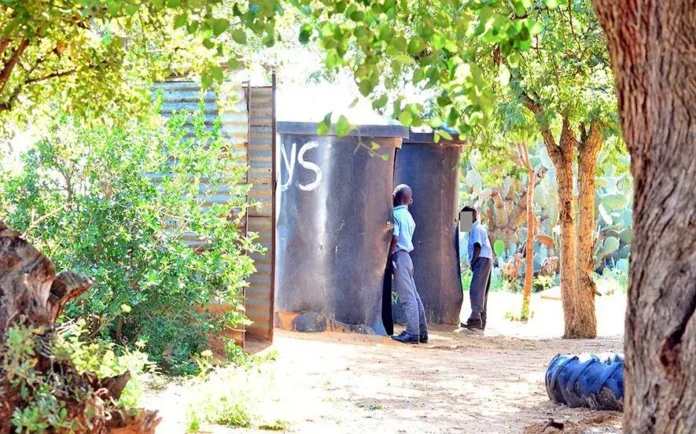Hundreds of pupils from schools in Nketoana in Free State are forced to endure horrifying unhygienic conditions that have led to some contracting urinary tract infections due to constant municipal water cuts.
The affected schools include Kgotso Uxolo Secondary School, Petsana Primary School, Phinduzame Primary School, and Leifo Iziko Secondary School.
Betty Pieter, a parent to two children at Kgotso Uxolo Secondary School, said her daughter developed sores on her private parts after using the dirty toilets.
She expressed frustration, explaining that since water shedding started and toilets stopped being cleaned, both her children avoid using the toilets at school.
“This is not the only case I know of. I met with another woman during our parents’ meetings, and she told me that even her boy child contracted an infection.
“It all started with daily water shedding, but it is now a norm because when water returns during the day, we won’t hear that the toilets were at least cleaned.”
She described the state of the school toilets as filthy, foul-smelling, and unusable.
Tumelo Monyatsi, a parent of a pupil at Petsana Primary School, said he learnt from his child in grade 1 that the state of school toilets was unbearable.
“When I first heard of this situation, my son had a runny stomach and told me he nearly messed up his pants because of the dirty toilets, and nature forced him to use them.
“I then started doing my investigation about the status of all school toilets in the Petsana location and realised they are all the same.
“I even contacted other parents to find a way forward, as I was proposing that we clean the toilets ourselves, and I was told that the schools hired people to clean toilets.”
He explained that the stench of waste is overwhelming, making it nearly impossible to breathe without gagging.
Medical experts warn that prolonged avoidance of using the toilet can lead to serious bladder damage.
Howard Ndaba, spokesperson for the Free State department of education, acknowledged that water restrictions have affected schools, but said the issue stems from ongoing maintenance work on the Lesotho Highlands Water Project, which supplies water to the
Nketoana local municipality.
He said the restrictions normally happen between 9am and 4pm, and school cleaners have been instructed to prioritise toilet cleaning early in the morning before the water is cut.
The department expects the maintenance work to be completed by the end of this month. He said all schools had been provided with water tanks in the meantime.
Despite concerns from parents and pupils, Ndaba maintained that teaching and learning
remained unaffected.
The South African Union of Learners president, Oratile Levuno, referred to the situation as unacceptable and demanded urgent action in all schools.
Levuno emphasised that access to clean water and proper sanitation is not just a necessity but a constitutional right.
“Lack of proper sanitation has devastating effects on learners. It compromises their health, leading to absenteeism due to illnesses caused by exposure to unsanitary conditions.
“It also affects their dignity and concentration, making it difficult for them to focus on their studies.
“Female learners, in particular, are disproportionately affected as they struggle with menstrual hygiene in schools that lack clean and functional toilets,” Levuno said.
“If this crisis is not resolved, we will pursue legal action against those responsible. We also urge communities to stand with us in demanding dignity and proper learning conditions for our children,” said Levuno.



